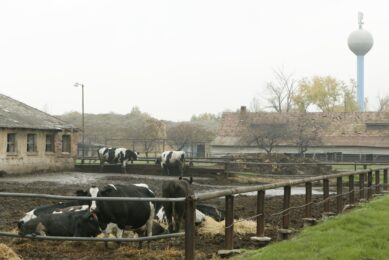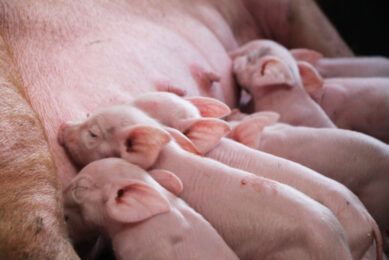Oops, a dead pig on the shore. Now what?

African Swine Fever confronts national authorities with sensitive dilemmas. Of course it is great to be able to follow the spread of ASF, but what if the virus might have entered your own country. What is best to do? Pig Progress editor Vincent ter Beek discusses the options – but thinks only one option really can make a difference.
I’d like to take you, dear reader of Pig Progress, on an imaginary journey. One day you hear that nearby, a dead porcine has been found on a shore. Sure, strange things do wash ashore from time to time – and that might include the odd dead animal.
In times of African Swine Fever (ASF) extreme caution is necessary. Here is your dilemma: how do you prefer your local authorities to react? Should they be transparent about their actions, or not? And should they test the dead animal for disease, or not?
Let’s explore the 3 different options.
Sharing the cause of death
In the case of “transparency, yes,” and “testing, yes,” each carcass will be carefully secured and then sent to a laboratory to see if the cause of death can be established, after which the world will know whether there is a cause for alarm.
From an international point of view, this approach deserves applause. In case ASF has indeed hopped to yet another island or location, it is in everybody’s interest to know about this development.
(All transparently reported outbreaks have been combined in the Pig Progress map below, which has been viewed 850,000 times worldwide by now.)
Taiwan: transparency yes, testing yes
Pretty much that scenario happened when between December 2018 and June 2019, the Taiwanese authorities kept finding dead pigs on the shores of Kinmen and Matsu islands. These islands are part of Taiwan, although they are just a few km off the coast of China’s Fujian province, where ASF has been reported since November 2018. In 9 cases at Kinmen islands and in 2 cases at Matsu islands, the animals tested positive for ASF.
All neighbouring farms tested negative – it was just a matter of isolated positive carcasses having washed ashore on the beach. That was all communicated through official Taiwanese websites. The cases, however, were not reported to the World Organization for Animal Health (OIE).
Denmark: transparency yes, testing no
The reason not to report to the OIE might be in line with how Denmark recently dealt with a somewhat similar matter. Denmark chose to combine transparency with not testing for disease when at least 10 dead wild boar washed ashore on the island Ærø. So basically the Danish took care of the dead animals carefully, and had them sent to the incinerator immediately. The authorities communicated openly and in detail about that strategy.

Read the latest updates about African Swine Fever in our online overviews
It was an approach that was applauded by quite a few in the domestic pig industry. After all, if the animals would have been tested for disease, how then to explain that a certain pathogen would have been found on your shores and at the same time defend that it is not in your country? The consequence might have implications for the entire country’s trading position – affecting the country’s pig industry as a whole.
Reality appears to have proven Denmark right. With no further remarkable health problems in Denmark’s pig population reported, one can be relatively sure that whatever caused the animals’ deaths – it wasn’t anything alarming. But it was good that people knew about it.
Transparency: No
Things get worrisome though when authorities, for whatever reason, do not prioritise immediate transparency. In that case it doesn’t really matter when the animals get tested or not – the outside world will not have a clear idea what happened anyway.
At a first glance, the option of not (immediately) reporting may look plausible or even appealing. Think of the following:
- “Perhaps it’s possible to contain it very early.”
- “Perhaps the consequences will not be that bad.”
- “We can solve this in our own way.”
- “How does it help us if we report it?”
- “Let’s first focus on solving the problem – informing we can do later.”
- “We don’t want our country to lose face.”
- “If we don’t inform anybody, nobody will ask questions.”
- “Let us prioritise international trade.”
- “We want the business to continue.”
However understandable, these are all short-term thoughts.
After all, how are people in the next province to know that something serious has just washed ashore? How are they supposed to know it is better not to truck pigs around? How will they be able to be prepared for what might be coming?

Read more about pig health in the Pig Progress Health Tool
Immediate transparency about ASF is a must
If one thing has become clear in Asia as well as Eastern Europe over the last year, it is that there is one condition which lies at the basis of any successful fight against African Swine Fever. Coordination and cooperation will only succeed in combination by a willingness to rapidly and openly share vital information. Immediate transparency is key.
In other words: absence of immediate transparency will most likely lead to a quicker and much more vehement outbreak of ASF – for you and for your neighbours.











